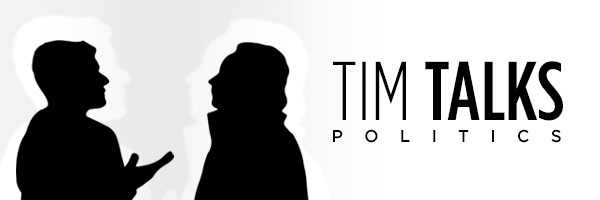Tim Talks Politics - The Weekly Brief, October 12, 2018

The Weekly Brief - October 12, 2018
Deciphering China’s economy
With an ever-expanding trade war, Asian markets took a drop this week on the one two punch of additional tariffs and interest rate hikes in the United States. That drop seems to be biting into China's rich list as well. Asia Times reports that 20% of China's billionaires have dropped off Hurun’s “richest in China” list.
Usually, when Asian markets take a dip like this observers immediately start singing the funeral dirges on China's growing economy but that may be premature given China's ability to weather economic storms so far.
The fact remains that what happens in the Chinese economy is still fairly obscure to most outside observers thanks to a lack of transparency and public reporting. Much like the Soviet economy of the late Cold War it may look more powerful than it is, or could just really be that powerful. No one really knows.
Cold War 2.0?
And speaking of the Cold War, in a major speech at the Hudson Institute this week, Vice President Mike Pence laid out one of the most complete lists of American grievances with China to date. Stopping short of declaring China an outright adversary of the United States, Pence's speech leaves little doubt that Cold War II has officially begun.
The question now remains how will this cold war be carried out? Most observers believe that it will be a Russia-China axis that faces off against the United States, but the extent to which China can successfully build a global coalition capable of confronting United States remains to be seen.
As in the first Cold War, India will remain a major question mark, but may be even more likely to fall Into the American sphere given its close proximity, and soon to be realized, power parity with China.
Deterrence 2.0
With Cold War 2.0 more or less declared by VP Pence, attention now turns to that other Cold War artifact, namely, deterrence. Though America and China may largely be living in a post-nuclear world, that doesn't mean that nuclear weaponry loses its strategic advantage.
So even though American defense thinkers might resurrect the idea of space-based missile defense systems, smaller countries including, American allies, might be considering whether or not to develop their own nuclear deterrent as Australia seems to be considering.
Regardless of how deterrence is actually carried out in this new conflict landscape one thing is certain: America will have to ensure that it has a strong defense infrastructure to maintain its defenses. That's something that one Observer, writing from Singapore, is quite skeptical of.
Spies and Saboteurs
Two truly bizarre stories in the world of authoritarian governments kidnapping dissidents. According to Turkish authorities, a Saudi Arabian national disappeared in the Saudi Arabian consulate in Ankara this week. Jamal Khashoggi is a Saudi reformer who writes for the Washington Post.
Of course, the Turkish press is not exactly trustworthy, and Turkey is not exactly friendly with Saudi Arabia. But, with reports swirling that Khashoggi may have been murdered in the consulate it may be the latest in a series of official kidnappings and disappearances leveraged by the Saudi royal family as a means of silencing potential troublemakers.
Not to be outdone, China pulled off its own disappearing act this week by intercepting a former Interpol chief on charges of corruption. as of now we only know that the Interpol Chief was in China and has disappeared.
To top it all off, America succeeded in getting a Chinese intelligence officer extradited from Europe on charges of spying on us aviation companies.
Mixed messages on US economy
Perhaps contrary to general economic logic, the US economy continues to do well despite trade wars and dips in the Asian markets. This is good news for the Republican Party ahead of the midterms, but observers are continuing to scratch their heads.
The Council on Foreign Relations argues that last year's tax cuts are the only thing keeping the US from a more sluggish economy.
The Brookings Institute points out that even if real wages are rising, household income is not going up, which poses a problem for long-term growth.
Interestingly enough, though perhaps not surprising, Pew Research finds that whether you think the economy is doing well or not may say more about your political preference than it does about economic reality.
Brazil election
In case you missed it last week, Brazil held its first round of presidential and legislative elections. Perhaps to the surprise of most outside observers, but not too surprising to most Brazilians, the far-right party led by former Army captain, Jair Bolsonaro, won a majority in the first round of the presidential election.
Bolsonaro came close to winning the election outright (46%), but failing to achieve a 50% share of the vote there will now be a runoff election against the ruling far-left party.
Brazil now joins other countries around the world with the dubious distinction of having right-wing populist governments emerge after years of misrule by left wing coalitions.
The runoff election could still see the ruling left-wing party win, but that is unlikely given that it only polled at about 26% in the first round. Even if the left wing retains its control of the presidency it has lost control of the legislature.
Assuming a Bolsonaro win later this month, Americas Quarterly looks ahead to a Bolsonaro presidency.


